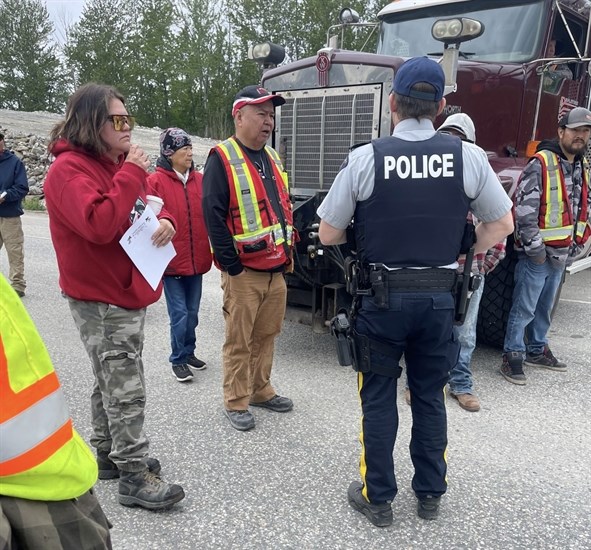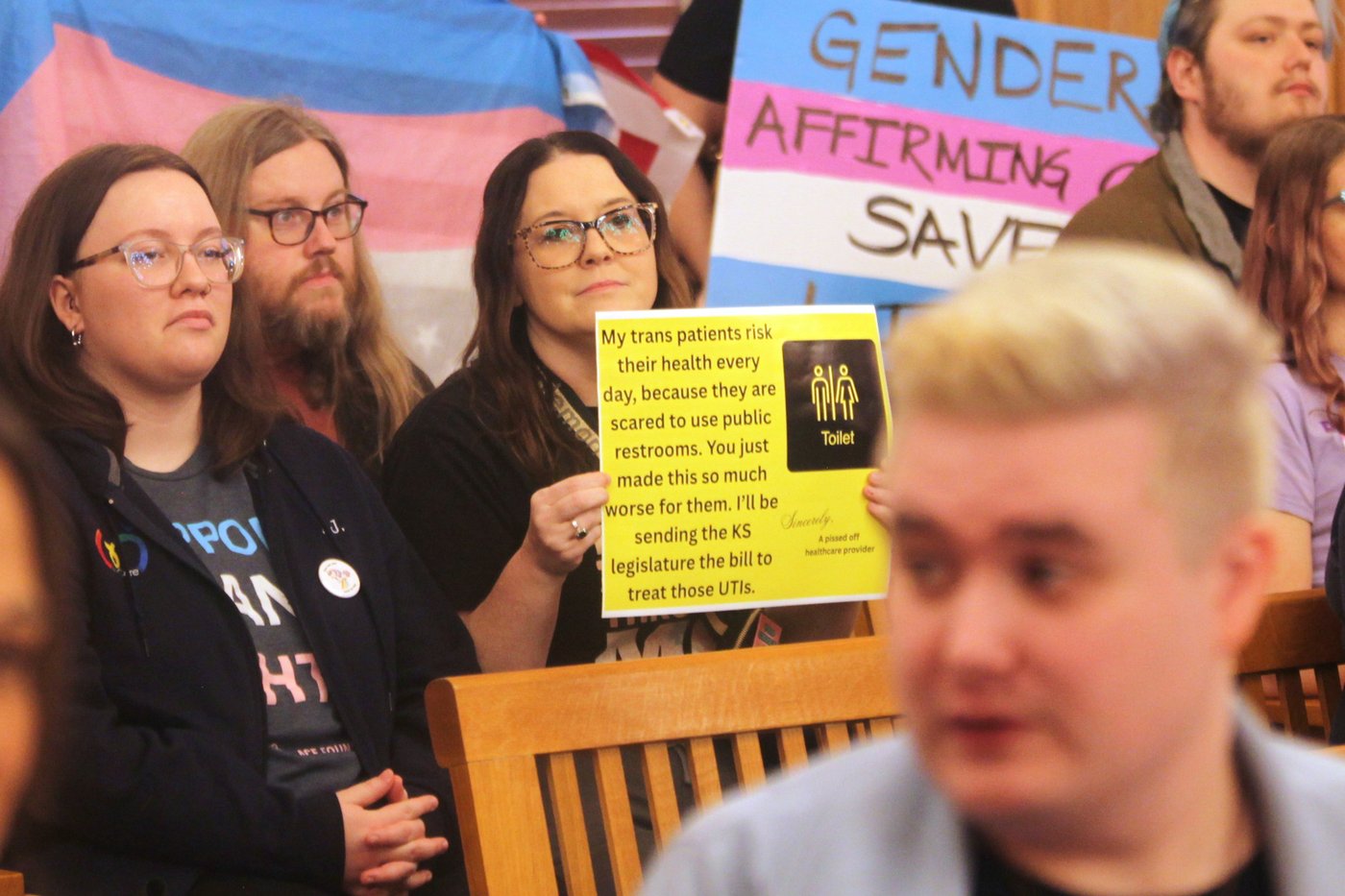Sicamous bridge blockade lifted after talks between First Nations and construction companies
A Trans-Canada Highway bridge blockade by Splatsin First Nation earlier this week has been lifted after negotiations to honour the agreement to include Indigenous workers.
Splatsin blocked the R.W. Bruhn Bridge on Monday, but by Wednesday evening the blockade was lifted.
The $260-million project to replace the bridge included a deal for Indigenous participation in the project, but Splatsin said Indigenous workers and companies have been exploited, according to a press release from the nation issued Monday, May 12.
Splatsin got together with the contractors for the bridge project including Aecon Group and Emil Anderson Group on Tuesday, May 13, and after a successful meeting, the Splatsin Development Corporation and the contractors are ready to move forward with the project, according to a release from the nation issued May 14.
“We are optimistic about this new chapter,” Splatsin’s Kukpi7, chief, Michael Christian said in the release. “This project takes place in our Area of Caretaker Responsibility within the Secwepemc Nation, and it’s essential that Splatsin has a role in shaping it. The past few days have shown the strength of our voices—but more importantly, they’ve shown what’s possible when we come back to the table and work together with honesty and respect.”
CEO of Splatsin Development Corporation, Grahame Go, said he expects the project to go more smoothly now.
“We’ve reconnected and laid the foundation for a healthier relationship moving forward,” Go said in the release. “We appreciate Aecon Emil Anderson Construction General Partnership’s willingness to engage and reset. We’re now aligned in our goal to make this project not only a technical success, but a relationship success as well. We look forward to playing a greater role as the work continues.”
READ MORE: First Nations blockade Trans-Canada bridge in Sicamous claiming broken promises
When the blockade went up, Splatsin said the contractors had been taking advantage of Indigenous workers and practices meant to foster reconciliation.
The nation said Aecon and Emil Anderson had been excluding qualified Indigenous workers, reserving undesirable jobs for Indigenous crews, allowing employees to self-identify as Indigenous without verification, and more.
Subcontractors were supposed to buy fuel from the Splatsin gas station Quilakwa Fuel, but unionized Teamsters weren’t informed about the agreement. There have been last minute, even late night shift cancellations with little or no explanation. The Splatsin Development Corporation’s trucks were removed from the project even though there was a deal to split the trucking work.
Emil Anderson and Aecon said the relationship with Splatsin has been reset.
“We are committed to building a strong, long lasting, and collaborative relationship with Splatsin and Splatsin Development Corporation based on our shared values,” vice president of the Aecon Emil Anderson Construction General Partnership Simon Green said in the release. “We are confident working together we can successfully complete this integral project for the surrounding communities.”
The bridge project is on an archeological zone where thousands of artifacts have been recovered since 2022, and Sicamous itself is a traditional territory for the Splatsinac.
Splatsin is the southernmost Secwépemc band and a member of the Shuswap Nation Tribal Council. Profits from the development corporation are reinvested in the Splatsin community.
To contact a reporter for this story, email Jesse Tomas or call 250-488-3065 or email the editor. You can also submit photos, videos or news tips to the newsroom and be entered to win a monthly prize draw. Find our Journalism Ethics policy here.
We welcome your comments and opinions on our stories but play nice. We won't censor or delete comments unless they contain off-topic statements or links, unnecessary vulgarity, false facts, spam or obviously fake profiles. If you have any concerns about what you see in comments, email the editor in the link above. SUBSCRIBE to our awesome newsletter here.




